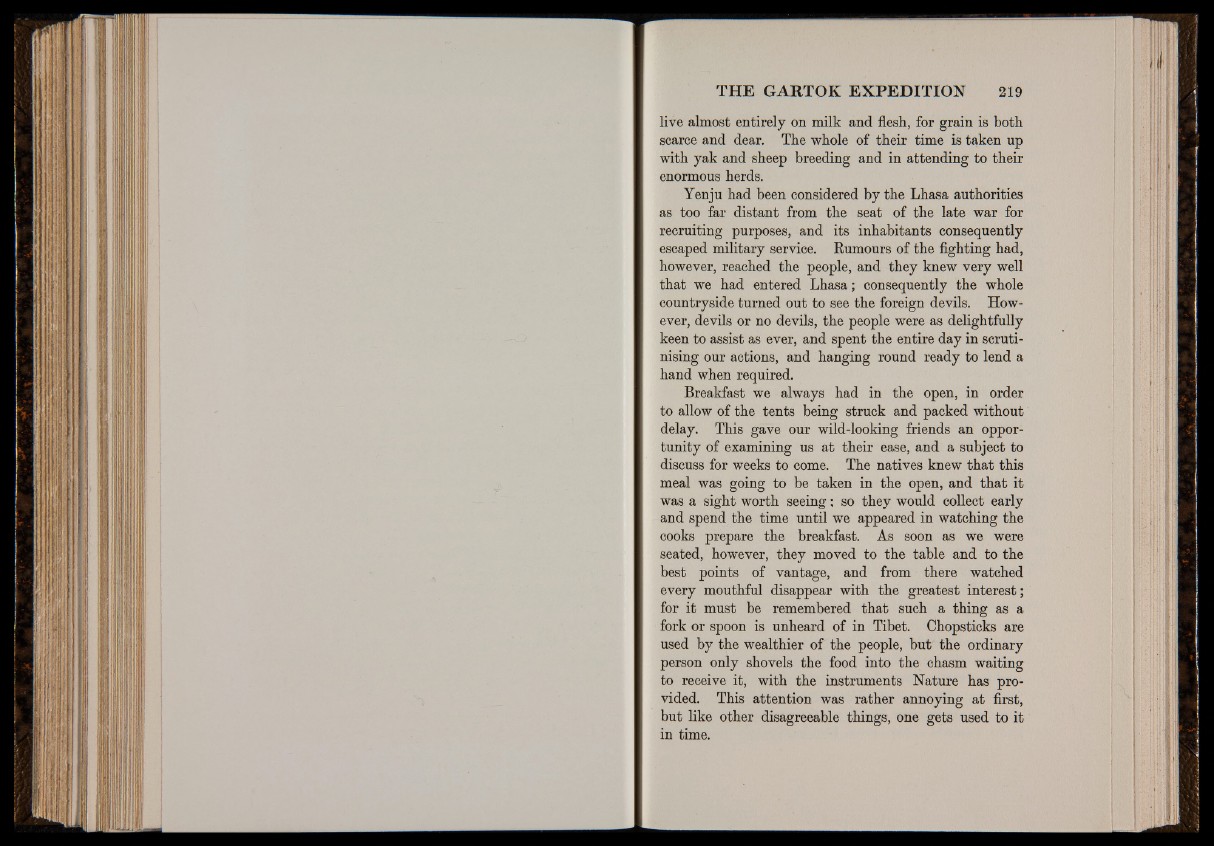
live almost entirely on milk and flesh, for grain is both
scarce and dear. The whole of their time is taken up
with yak and sheep breeding and in attending to their
enormous herds.
Yenju had been considered by the Lhasa authorities
as too far distant from the seat of the late war for
recruiting purposes, and its inhabitants consequently
escaped military service. Rumours of the fighting had,
however, reached the people, and they knew very well
that we had entered Lhasa; consequently the whole
countryside turned out to see the foreign devils. However,
devils or no devils, the people were as delightfully
keen to assist as ever, and spent the entire day in scrutinising
our actions, and hanging round ready to lend a
hand when required.
Breakfast we always had in the open, in order
to allow of the tents being struck and packed without
delay. This gave our wild-looking friends an opportunity
of examining us at their ease, and a subject to
discuss for weeks to come. The natives knew that this
meal was going to be taken in the open, and that it
was a sight worth seeing; so they would collect early
and spend the time until we appeared in watching the
cooks prepare the breakfast. As soon as we were
seated, however, they moved to the table and to the
best points of vantage, and from there watched
every mouthful disappear with the greatest interest;
for it must be remembered that such a thing as a
fork or spoon is unheard of in Tibet. Chopsticks are
used by the wealthier of the people, but the ordinary
person only shovels the food into the chasm waiting
to receive it, with the instruments Nature has provided.
This attention was rather annoying at first,
but like other disagreeable things, one gets used to it
in time.